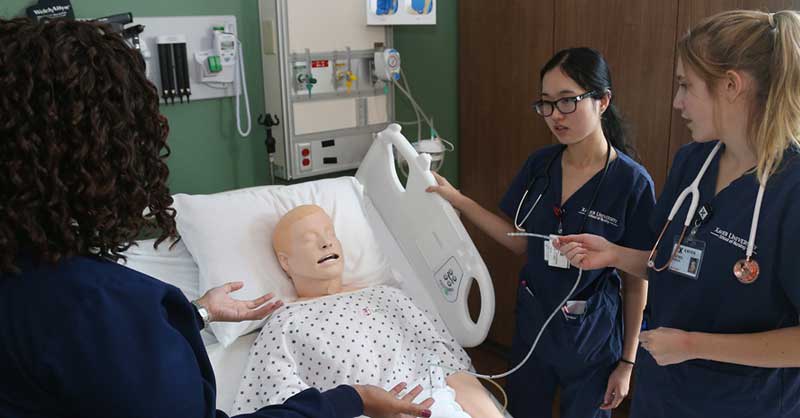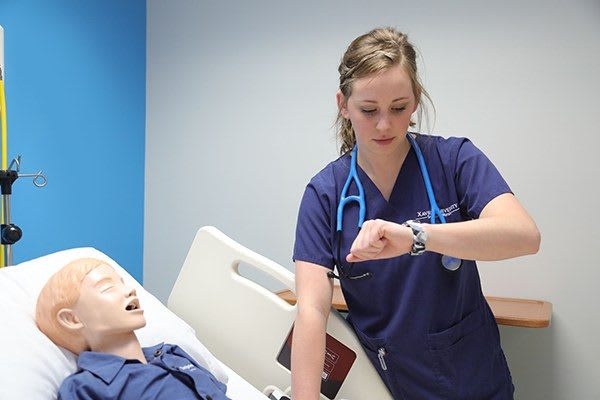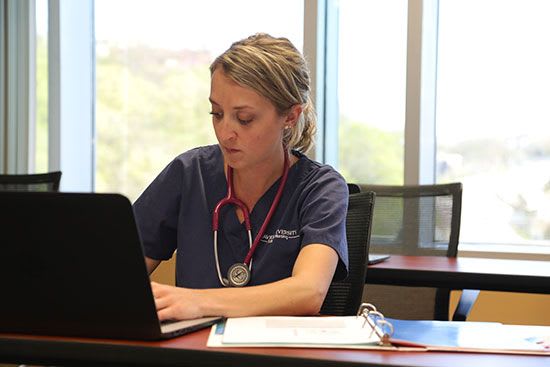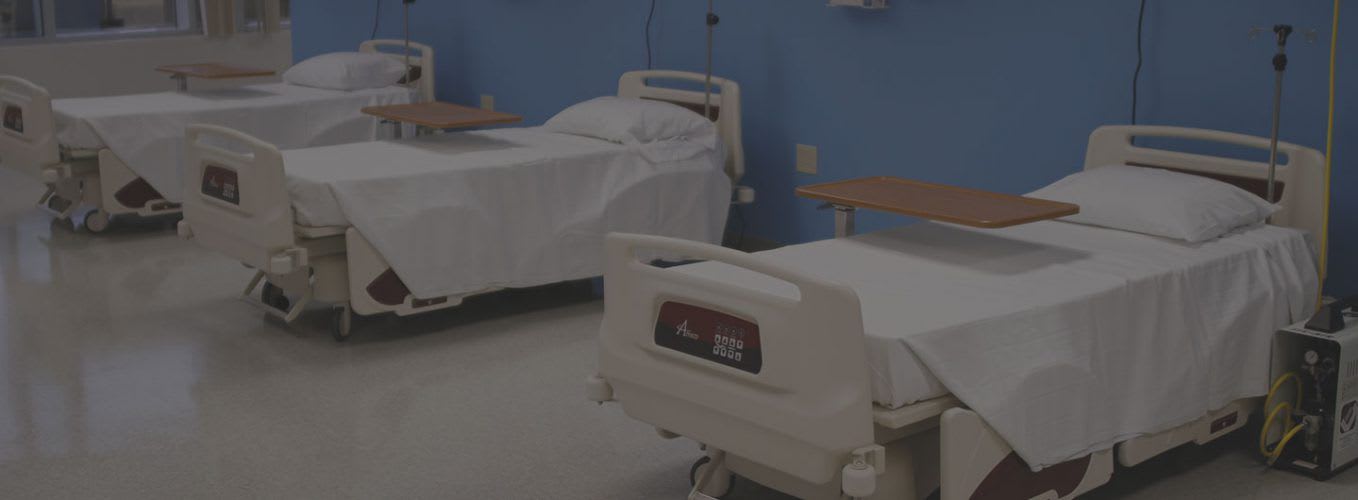How Long Does it Take to Become a Nurse? It Depends.
Each blog post is dated and contains accurate information as of that date. Certain information may have changed since the blog post publication date. If you would like to confirm the current accuracy of blog information, please visit our ABSN program overview page or contact us at 866-890-9467.

How long does it take to become a nurse? While a straightforward question, the answer is less so. That’s because there are several paths you can take to enter the profession. And depending on where you are now and what your plans are for the future, you could spend anywhere from 16 months to four years preparing for your RN license.
To become a registered nurse, you need an Associate Degree in Nursing (ADN) or a Bachelor of Science in Nursing (BSN) — and you must pass the nurse licensure exam. But what you’ll find is that while these education options can get you started in the profession, they don’t produce the same career outcomes.
In this post, we’ll break down these entry points as well as take an in-depth look at how Xavier University can get you started on your nursing career sooner.
How Long is Nursing School?
We understand that you likely don’t want to spend more time than needed earning a degree to become a nurse. The time commitment depends on the type of program you choose, so we’ll walk through the three main paths toward a career as a nurse:
Associate Degree in Nursing (ADN)
If you’re wondering how to become an RN fast, an associate degree in nursing may be on your radar. ADN programs take about two years to complete and focus primarily on clinical skills application. Given that they are less time-consuming and more affordable than traditional BSN programs, ADN programs used to be the go-to education path for entering the nursing profession.
Today, however, the health-care industry has evolved to the point where employers see the value of having more BSN-prepared nurses on staff. Not to mention, the American Association of Colleges of Nursing (AACN) recognizes a BSN as the minimum education requirement for professional practice.
Bachelor of Science in Nursing (BSN)
While ADN programs focus mainly on applied skills training, a BSN education dives deeper into the profession. The degree’s well-rounded curriculum covers nursing research, disease prevention, informatics, patient advocacy, and much more. Thereby, nurses with a BSN have a better understanding of how economic, social, and cultural issues affect patients and the health-care delivery system.
The length of time it takes to earn a BSN varies by individual. If you’re a high school graduate, you need to take the traditional four-year college route. If you’re a working registered nurse with an ADN, you can earn a BSN in 12 to 15 months via an online RN-to-BSN program.

Accelerated Bachelor of Science in Nursing (ABSN)
If you already have a bachelor’s degree in a non-nursing field of study, you can become a nurse in under two years via a second-degree BSN program, which includes our 16-month ABSN program in Ohio. The Xavier ABSN program combines online coursework, skills and simulation labs, and clinical placements to prepare you to confidently enter the health-care field as a nurse. How long does it take to become a registered nurse? It can take as few as 16 months with the ABSN program at Xavier.
NCLEX Preparation
Whether you graduate from nursing school with an ADN or a BSN, you must pass the National Council Licensure Exam (NCLEX-RN®) to legally practice the profession as a registered nurse.
NCLEX preparation begins on your first day of nursing school and ends when you pass the exam. Our ABSN program teaches and continuously reinforces the type of nursing content presented on the NCLEX.

The exam comprises complex, multiple-choice questions that are unlike any you’ve seen before. These questions feature several correct answers, and it’s up to you to determine which one is the most correct. Our faculty will coach you on test-taking strategies, including how to break these questions down to get to the correct answer.
Overall, our ABSN program will provide you with a great education that not only prepares you to take the NCLEX, but also gives you the path to enter the nursing profession with confidence.
Ready When You Are
If you believe you have what it takes to become a nurse, we can help you accelerate into the profession. Currently, all three of our ABSN program locations in Ohio have seats available. And as long as you have a non-nursing bachelor’s degree, meet the prerequisite requirements, and maintain a cumulative GPA of at least 2.7, you can set your nursing education in motion.
Xavier follows a rolling admission process, which means we review ABSN applications as they come in. Thereby, you’ll receive an admission decision from us within a few weeks of submitting your application. More importantly, admitted students have the opportunity to secure a spot in their preferred term (spring, summer, or fall) on a first-come, first-served basis.
Reach out to our admission team today, and you’ll see it doesn’t take long to become a nurse. Start your journey today!

ABSN 101 Guide
Download our ABSN 101 Guide to help you successfully navigate the accelerated path to nursing.
